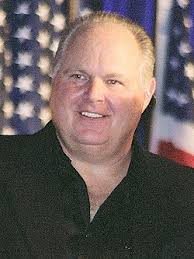The Lasting Influence of Rush Limbaugh on Media and Politics

Introduction
Rush Limbaugh, renowned as one of the most influential conservative radio talk show hosts in American history, reshaped political discourse and media landscapes. His unique style and unapologetic commentary garnered a massive following, making him a pivotal figure in American media over the last three decades. Limbaugh’s approach to broadcasting and his role in the Republican Party’s rise in the late 20th century continue to resonate today, highlighting the relevance of his contributions to both media and politics.
Career Highlights
Beginning his career in the late 1980s, Limbaugh launched his national radio show in 1988, which quickly gained popularity for its provocative content and engaging format. His ability to blend humour with serious political commentary established a new paradigm for talk radio, effectively monopolising the airwaves for conservative viewpoints. By the 1990s, Limbaugh was reaching an audience of millions daily, becoming a leading voice in the conservative movement alongside figures like Newt Gingrich and George H.W. Bush.
Impact on American Politics
Limbaugh’s influence extended into the political arena as he solidified his place as a key ally for conservative politicians. His commentary often shaped public opinion and agenda, particularly during critical elections and policy debates. By mobilising passionate supporters, he played a significant role in the rise of the Tea Party movement and the election of Donald Trump. Moreover, his commentary regularly drew both praise and criticism, reflecting his ability to engage and polarise audiences simultaneously.
Legacy and Continuing Influence
Although Limbaugh passed away in February 2021, his legacy remains potent. The format he popularised has given rise to numerous imitators and successors, maintaining the niche of conservative talk radio. His candid approach to controversial topics paved the way for subsequent media personalities, such as Sean Hannity and Tucker Carlson, who carry on his tradition in today’s media landscape. Furthermore, discussions around his impact often invoke debates on media bias, the role of radio in politics, and the broader implications of echo chambers in contemporary American society.
Conclusion
Rush Limbaugh’s significant contributions to American media and politics cannot be understated. His pioneering model for talk radio continues to influence how political discussions are framed today. As audiences increasingly consume political content through various media platforms, Limbaugh’s approach invites reflection on the role of such figures in shaping public discourse. The implications of his legacy will be felt in future generations as scholars and analysts study the evolving intersection of media, politics, and society.
